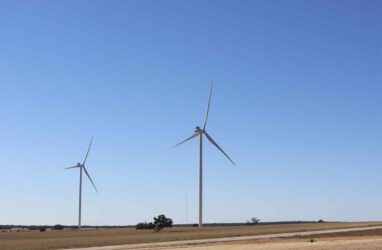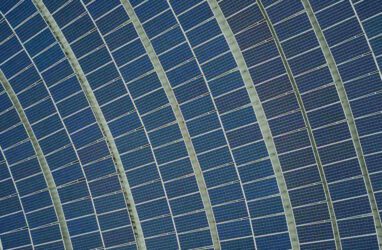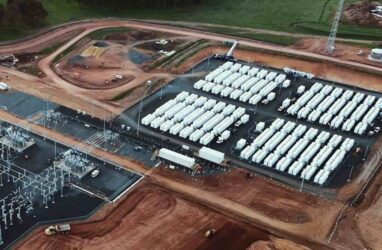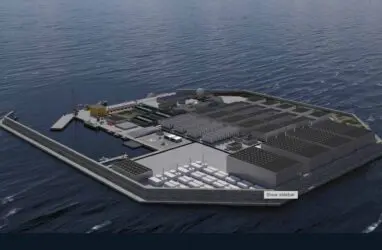Feed aggregator
Verra’s review process of Southern Cardamom REDD+ project raises independence, structural concerns, says human rights group
INTERVIEW: Australian companies can gain competitive advantage by thoroughly reporting against new mandatory climate requirements
Perth company successfully switches on solid state battery using table salt
 Perth-based Altech Batteries switches on prototype sodium-chloride solid state battery in Germany.
Perth-based Altech Batteries switches on prototype sodium-chloride solid state battery in Germany.
The post Perth company successfully switches on solid state battery using table salt appeared first on RenewEconomy.
ARB drops second LCFS 15-day notice near midnight Eastern to minimise market impact
Korean refiner seeks commercialisation of membrane technology in carbon capture process
Floods are wreaking havoc around the world. Vienna might have found an answer | Gernot Wagner
The Austrian capital has been spared the worst of recent flooding. Its experience could be a lesson in how to tackle the climate crisis
Floods are seemingly unavoidable these days. Florida, North Carolina, Nigeria, Tunisia, Mexico, India, Nepal, Vietnam, Poland and Austria are among the places that have experienced flooding in the last month. Those floods should no longer come as much of a surprise. Climate change leads to more frequent and intense rain almost everywhere on the planet, and most infrastructure, from roads and bridges to canals and hydroelectric dams, is simply not built to withstand such extremes.
That’s where Vienna stands out. The floods that have deluged central Europe over the past two weeks caused plenty of disruptions in Lower Austria, including to a newly built train station meant to connect the burgeoning suburbs to the city. But aside from some disruption to Vienna’s otherwise well-functioning subway system, Viennese homes were largely spared. Why? It’s not because Vienna sits on higher ground than the surrounding areas (by and large it does not). The reason the city escaped the worst of the floods is because of human engineering and political foresight dating back to the 1960s, which emerged in response to earlier floods that devastated parts of the city.
Gernot Wagner is a climate economist at Columbia Business School. He is a member of the scientific advisory board of the Wiener Klimarat, Vienna’s climate council
Continue reading...ETS, CCS collaboration should be on the table at Starmer-von der Leyen summit -think tank
Australia can ride the waves of China’s “green capital tsunami” – but a change in attitude is needed
The post Australia can ride the waves of China’s “green capital tsunami” – but a change in attitude is needed appeared first on RenewEconomy.
Coal extension and public power retailer set battle lines for Queensland’s energy election
The post Coal extension and public power retailer set battle lines for Queensland’s energy election appeared first on RenewEconomy.
Do not pass go: South-west NSW wind project sent to get federal green tick
 A wind and battery project is going straight into the EPBC process for federal approval.
A wind and battery project is going straight into the EPBC process for federal approval.
The post Do not pass go: South-west NSW wind project sent to get federal green tick appeared first on RenewEconomy.
Investors ask US regulator to block JBS listing over environmental concerns
CWNYC24: Regulatory uncertainty dominates North American compliance markets
California power emissions drop YoY in August as renewables regain share, natural gas recedes
INTERVIEW: Biopropane seeks to scale into key component of energy transition
Alberta TIER September spot prices fall to lowest in two years as illiquidity dampens market
The biodiversity jukebox: how sound can boost beneficial soil microbes to heal nature
Battery hopeful licks its wounds after missing out on capacity credits as grid shortfall erased
The post Battery hopeful licks its wounds after missing out on capacity credits as grid shortfall erased appeared first on RenewEconomy.
San Francisco sees hottest day of 2024 as heatwave scorches US south-west
Excessive heat warnings bring elevated wildfire risk, potential for power outages and rising death toll
San Francisco recorded its hottest day of the year on Tuesday, and Phoenix set a record for the hottest 1 October on record, as the National Weather Service predicted record-high fall temperatures across the south-western US.
With temperatures hitting 100F (38C) or higher in many places, officials and local media outlets issued warnings that the heat posed “a significant threat to property or life”. Excessive heat warnings were in place across the region, bringing with it warnings about elevated wildfire risk, the potential for sweeping power outages in California and a rising toll of heat-related deaths, a particularly deadly risk for unhoused people and the elderly.
Continue reading...Offshore hydrogen “energy islands” could save Germany €4 billion per year – report
The post Offshore hydrogen “energy islands” could save Germany €4 billion per year – report appeared first on RenewEconomy.







